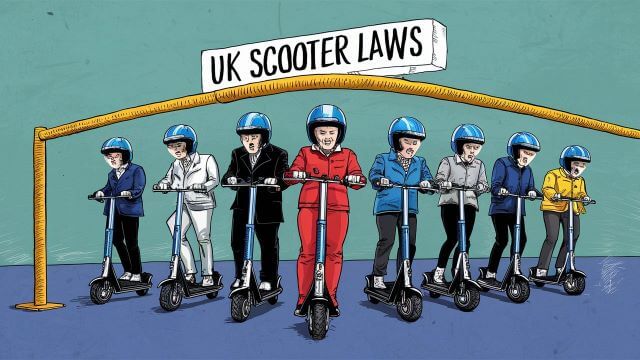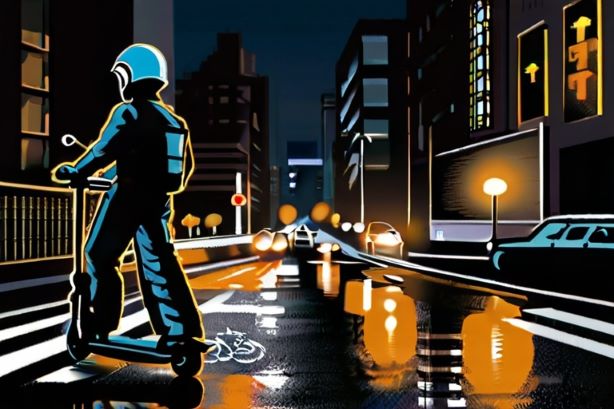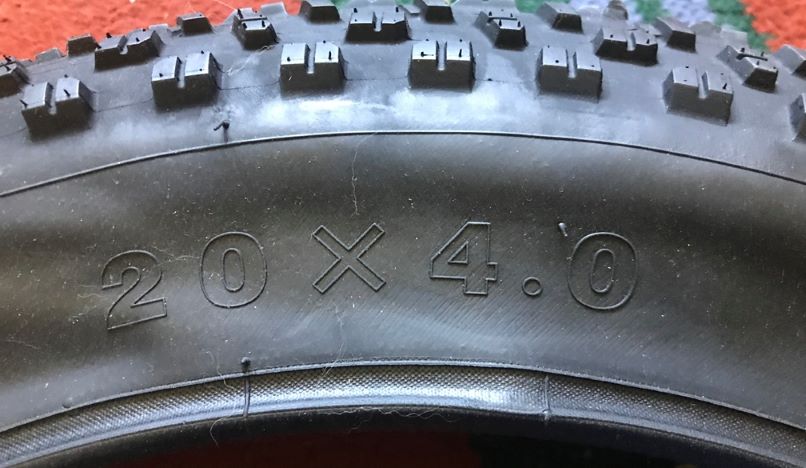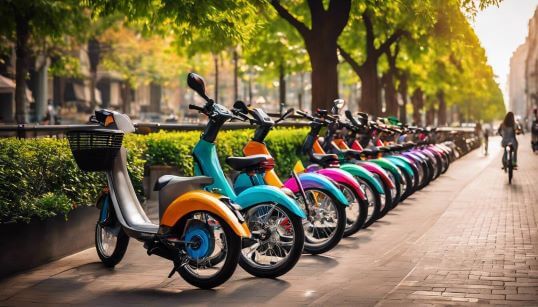Navigating the legal landscape surrounding electric scooters in the UK can seem daunting and convoluted. However, understanding these regulations is crucial for avoiding penalties and ensuring your safety on the roads. This comprehensive guide deconstructs the complexities of existing electric scooter legislation, serving as your dedicated ally in the fast-paced world of micro-mobility. Whether you’re an e-scooter veteran or a newcomer eager to join the green movement, join us as we navigate through this critical topic that seamlessly merges law, technology, and sustainability.
Currently, privately owned electric scooters are illegal to use on public roads, pavements, or cycle lanes in the UK. They can only be used on private land with permission from the landowner. However, rental e-scooters are being tested in certain areas, and pending successful trials, we can expect electric scooters to be approved for use on roads throughout the UK. Riders need to follow all applicable traffic laws and regulations to avoid fines and licence points.

Current Status of UK Electric Scooter Laws
The legal tangle around electric scooters in the UK could give a bowl of spaghetti a run for its money. Here we are in 2023, and it’s still illegal to whizz about on your private electric scooters on public roads. Meanwhile, the government, in its infinite wisdom, is pottering around with trials in various corners of the country, trying to figure out if these nippy little gadgets should join the transportation family. They’ve rolled out rental scooters, run by folks who’ve actually managed to snag a licence, so we can all have a go and see what the fuss is about.
It’s like the law got caught with its pants down when electric scooters zipped onto the scene. These scooters became affordable overnight, and the old British laws were about as prepared as a sunbather for a hailstorm. One minute scooters are a no-go, then suddenly, they’re sort of okay if you rent them, but nope, still mostly illegal. And who’s left to play scooter cop? The local bobbies, who’ve already got their hands full without having to chase down every teenager tearing up the pavement at a blistering 20 mph. The UK’s approach to scooter law is a classic case of ‘make it up as you go along,’ which is entertaining unless you actually want to ride one legally!
Several cities across the UK have participated in these trials, including Bournemouth, Cambridge, Liverpool, Milton Keynes, Portsmouth, Sunderland, and West Midlands. However, it’s important to note that some areas have halted their trials. The trial areas often have designated routes and cycle lanes where rental electric scooters can be used legally, you will need a licence to hire a scooter though, which is not often said online.
While riders participating in these trials are not explicitly required to wear helmets according to current guidelines, it is highly recommended for safety purposes. Additionally, riders must possess a valid driving licence to rent and ride these electric scooters during the trial period. Companies such as TIER, Lime, Voi, and Dott have been actively involved in providing rental services for these trial programmes.
Now that we have an understanding of the current status of electric scooter laws in Britain, let’s explore the legal requirements one must meet to ride an electric scooter legally.
- As of late 2023, it’s still illegal to use privately owned electric scooters on public roads, pavements, or cycle lanes in Britain.
- Electric bikes are permitted because they require pedalling, while electric scooters generate momentum solely from the electric motor and they must be pedal-assist ebikes and not throttle-based, you can find out more about the Ebike UK laws here.
- Riding an illegally used e-scooter can result in fines of up to £300 and six points on your driving licence in the UK.
- As of 2023, electric scooters are not yet legal for private use on public roads in Britain. However, the government is conducting trials in various regions to gather insights on their potential integration as a mode of transportation and allow rental electric scooters provided by licenced operators to be used legally on designated routes and cycle lanes. Riders participating in these trials are recommended to wear helmets and possess a valid driving licence. Companies such as TIER, Lime, Voi, and Dott have been providing rental services for these trial programmes.
Remember, regardless of the current trials and potential future legalisation, it’s important to stay updated on electric scooter laws and UK regulations. Making informed choices not only ensures your safety but also helps shape responsible and sustainable mobility practices.
I have written an article investigating why there has been such a long delay in escooter legislation

Licencing and Helmet Mandates
When it comes to electric scooters in the UK, there are specific regulations concerning licensing and helmet mandates that riders must adhere to. Currently, riding an electric scooter on public roads, pavements, or cycle lanes is illegal unless authorised as part of a government trial. However, it is worth noting that electric scooters can be used on private land with the permission of the landowner.
Now, let’s delve into the specific requirements related to licensing and helmet mandates for riding electric scooters in the UK.
According to the current regulations, riders of privately owned electric scooters do not need a driving licence to ride on private land. However, if electric scooters are approved for road use in the future after successful trials, riders will likely be required to have at least a provisional or full driving licence or license if you are in the USA.
Safety is paramount when riding electric scooters, and wearing a helmet is highly recommended. Although it is not currently legally mandated to wear a helmet when riding privately owned electric scooters on private land, it is strongly advised to protect yourself from potential injuries.
Imagine you’re cruising along on your electric scooter and suddenly encounter a bump or uneven surface that causes you to lose balance and fall off. Without a helmet, you risk serious head injuries that could have been mitigated with proper protective gear. Remember, safety should always be a top priority.
Some individuals argue against mandatory helmet mandates for private electric scooter riders on private land, highlighting personal freedom and autonomy as reasons. However, considering the potential risks and dangers associated with riding electric scooters at various speeds, especially in urban environments, wearing a helmet remains a prudent choice.
To further enhance safety measures and visibility on the road, riders are encouraged to wear reflective clothing or accessories during nighttime rides. This helps ensure that other road users can see you clearly amidst low light conditions. Bright colours and reflective elements can make a significant difference in preventing accidents and keeping you safe.
Moving on from licensing and helmet mandates, let’s now shift our focus to another crucial aspect of electric scooter regulations: scooter lighting and visibility standards.

Traffic Rules for Electric two-wheeled Scooters
Navigating through the traffic on electric scooters requires a clear understanding of the rules and regulations set by authorities. While the UK government is in the process of conducting trials to assess the feasibility of integrating e-scooters into public spaces, riders need to adhere to existing guidelines to ensure their safety and that of others.
When riding an electric scooter on public roads, it is crucial to follow traffic rules just like any other vehicle. This includes observing traffic signals, stopping at red lights, yielding to pedestrians, and signalling turns when necessary. By treating your electric scooter as a motorised vehicle, you contribute to safer roads for everyone.
Furthermore, riding an electric scooter on pavements or using dedicated pedestrian or cycle paths is prohibited. These spaces are designed for the safety and convenience of walkers, cyclists, and users of other non-motorised modes of transportation. Always be mindful of your surroundings and respect the designated areas for different types of road users.
Imagine you are riding your electric scooter along a busy city street during rush hour. As you approach an intersection with a traffic light, you slow down and stop at the red signal just like the cars around you. Pedestrians crossing the road have their right-of-way as stipulated by traffic regulations. By patiently waiting for the green light and exercising caution while proceeding through the intersection, you promote orderliness and prioritise safety.
Additionally, it is advisable to wear a helmet while riding an electric scooter, although it may not be legally required in all areas. Wearing protective headgear helps mitigate the risks associated with accidents or falls. It is always better to err on the side of caution and protect yourself from potential injuries.
Now that we understand the importance of following traffic rules when riding electric scooters, let’s explore speed limitations and conduct guidelines to ensure safe usage.
Speed Limitations and Safeguard Conduct
While electric scooters can offer a thrilling and efficient mode of transportation, it is crucial to exercise responsible conduct to ensure the safety of yourself and others around you. In the UK, there are specific speed limitations that riders must adhere to when using both privately owned and rental e-scooters.
For rental e-scooters, the maximum speed limit is typically set at 15.5 mph (24.9 km/h). This speed has been determined to balance achieving reasonable travel times and maintaining rider safety. It’s important not to exceed this limit when using rental e-scooters provided through official schemes in various cities across the UK.
On the other hand, privately owned e-scooters can achieve higher speeds, with some models capable of reaching up to 68 mph (110 km/h). However, it is crucial to recognise that these higher speeds are not intended for use on public roads. Privately owned e-scooters are currently only allowed on private land with the permission of the landowner.
When riding at any speed, it is essential to be aware of your surroundings and exercise caution. This includes being mindful of other road users such as pedestrians, cyclists, and vehicles. By maintaining a safe distance from others, signalling intentions when turning or changing lanes, and obeying traffic rules and speed restrictions, you contribute to creating a safer environment for everyone on the road.
Consider if you are riding your privately owned e-scooter along a shared cycle lane adjacent to a busy road. As you approach an intersection with cyclist markings on the ground indicating right-of-way for bicycles, you slow down and yield to any cyclists approaching from either side. By acknowledging their right-of-way and allowing them to proceed safely before continuing on your journey, you demonstrate consideration for other road users.
By adhering to speed limits while consistently practising safeguard conduct, we can collectively enhance the safety of electric scooter usage and contribute to the ongoing discussions and trials conducted by the UK government.
Penalties for Non-Compliance with EScooter Laws
While the demand for electric scooters continues to rise, it’s essential to remember that their usage is currently restricted to private land in the UK. Riding them on public roads, pavements, parks, or footpaths is against the law. The penalties for non-compliance with these laws can vary depending on the circumstances.
If caught riding an electric scooter on public land illegally, you may face penalties such as fines and points added to your driving licence. The specific fine amount can vary based on the jurisdiction and severity of the offence. However, it is important to note that currently only rental e-scooters are allowed on public roads through trial schemes run by private companies.
The penalties for illegal use extend beyond financial repercussions. Riding privately owned e-scooters illegally and knowingly putting yourself and others at risk may have implications when it comes to personal injury claims. Insurance companies typically do not offer coverage for privately owned e-scooter use, making it difficult in the case of accidents or injuries.
Understanding and adhering to the current regulations surrounding electric scooter usage is crucial to avoid any legal consequences. While there is ongoing discussion and proposed legislation towards amending these regulations, it’s important to prioritise safety and comply with existing laws until changes are implemented.
Fines and Points on Driving Licence
When it comes to riding electric scooters in the UK, it’s essential to understand the potential consequences of breaking the law. Riding an electric scooter on public roads, pavements, or cycle lanes is currently illegal and can result in fines of up to £300 and six points on your driving licence. This means that not only will you have to pay a substantial fine, but also face penalties that could affect your ability to drive other vehicles in the future.
It’s important to note that electric scooters are classified as “powered transporters” under UK law and fall under the legal definition of a “motor vehicle.” As such, they are subject to the same regulations and restrictions as other motor vehicles. Riding an electric scooter on public roads without adhering to these regulations can lead to significant consequences.
Imagine you decide to take your privately owned electric scooter for a quick ride on the pavement or through a busy city street. Unbeknownst to you, a police officer spots you and issues a penalty notice. Not only do you now face a hefty fine of up to £300 but also six points added to your driving licence. These points can potentially impact your insurance premiums and even lead to disqualification from driving altogether if accumulated over time.
While it may be tempting to ride an electric scooter on public roads due to its convenience and popularity, it’s crucial to prioritise safety and adhere to current laws. It’s always better to be patient and wait for official regulations rather than risking fines and penalties.
Its also important to notice that if you do not have a license because you are young there is very little they can do only take your scooter from you.
Potential Confiscation of Scooter
Beyond fines and points on your driving licence, there is also the potential for confiscation of your electric scooter if caught riding illegally on public roads, pavements, or cycle lanes. Law enforcement authorities have been increasingly cracking down on illegal e-scooter use, especially in major cities like London, it is unclear if this happens a lot though, apparently, the e-scooters were crushed but the police never actually said this.
Imagine riding your electric scooter on a cycle lane, thinking it’s safe and legal. Suddenly, you notice a police officer signalling you to stop. After examining your situation, the officer informs you that using privately owned scooters on public roads is illegal and proceeds to confiscate your scooter. Not only do you face the disappointment of losing your mode of transportation, which may have cost a significant amount of money, but also potential legal battles to retrieve it.
Confiscation serves as a deterrent and reinforces the message that private electric scooters must adhere to current legislation until official regulations are established. It’s important to remember that law enforcement agencies are actively monitoring and taking action against illegal scooter use, so it’s crucial to stay informed and respect the current laws in place.
However, it’s worth noting that while there are numerous reports of e-scooter confiscations, some individuals have been riding personal e-scooters without issues or encounters with the police. These scenarios typically involve riders who prioritise safety measures, riding sensibly, and wearing appropriate safety gear. Nevertheless, there is always an inherent risk of encountering the authorities and facing fines or confiscation.
The potential for fines and confiscation underscores the importance of understanding and abiding by current regulations surrounding electric scooter use in the UK. Safety should be the top priority for riders, along with adhering to any legal requirements imposed by local authorities.
I do actually feel sorry for the police in England as they are not the people who created this law, the UK government are to blame for all this mess, not the Police, the police just do their best to enforce it.
There are some proposed changes to the Ebike law more info here let’s hope the escooter law follows suit, It would be better for escooter law to follow the lead of electric cycling, and have some kind of power restrictions, or maybe some kind of registration policy, where people can actually register their scooter and pay to use it on Uk roads
Please share our Ebike and scooter store with others if you are looking for a quality electric scooter try our V8 Electric Scooter here
Other Frequently Asked Questions FAQS
Can a person legally ride an e-scooter without a licence or insurance in the UK?
You cannot legally use a privately owned electric scooter on UK roads, it does not matter if you have a licence or not, if you hire a legal scooter you do not need a driving licence.
You can only legally use a scooter from an approved scooter company which tends to be app-based. There are various ones located in various areas of the UK.
What penalties or fines can be incurred for breaking e scooter laws in the UK?
The penalties for breaking electric scooter laws in the UK can range from fixed penalty notices of £300 to fines up to £5,000 and six points on a driving licence. The severity of the penalty depends on the type of violation committed, such as riding on pavements, using a privately owned e-scooter on public roads, or exceeding speed limits. In 2022, the Metropolitan Police reported issuing over 27,000 fixed penalty notices for illegal e-scooter use, highlighting the strict enforcement of these regulations.
Has anyone ever had their scooter taken from them or received a fine for riding one?
There have been occasions when police have cracked down on electric scooters, however, while they are illegal it’s very common to see one or two people using these a day, with no hassle from the police, it is a massive grey area at the moment.
Are e scooters legal for use on roads and pavements in the UK?
The answer is, it depends, electric scooters are legal for use on roads in the UK as long as they meet certain requirements. However, they are currently illegal to be ridden on pavements. Since July 2020, e-scooters have been allowed to operate on public roads but only in certain designated trial areas and with rented e-scooters from authorised providers.
It is important to note that privately owned e-scooters cannot be legally ridden on public roads or pavements outside of these trial areas. According to statistics from the Department for Transport, during the first year of trials in 2020, e-scooter riders covered a distance of more than 1 million miles without any reported fatalities, indicating their potential as a safe mode of transport when used responsibly.
What specific regulations do e-scooters have to follow in the UK?
As of 2023, electric scooters are allowed only in designated areas or as part of rental trial schemes in select cities. These regulations aim to ensure safety and minimise potential risks associated with electric scooter use, such as accidents and pedestrian collisions. According to recent statistics, the introduction of rental trial schemes has led to a decrease in e-scooter accidents compared to when privately owned e-scooters were prevalent on UK streets.
There are currently officially no rules for scooters to follow as most of them in use are being used illegally anyhow each person takes their own precautions currently, hopefully, this will change in future.
Are there any age requirements or restrictions for riding an electric two-wheeled scooter in the UK?
Yes, there are age requirements and restrictions for riding an electric scooter in the UK. As of 2023, riders must be at least 16 years old to legally ride an electric scooter on public roads. This requirement is in place to ensure that riders have a certain level of maturity and understanding of traffic rules. Additionally, it helps maintain safety standards as younger riders may lack the necessary experience to navigate the roads safely. Violating this age restriction can lead to penalties or fines imposed by authorities. According to statistics from the Department for Transport, setting an age limit has proven effective in reducing accidents involving underage riders and promoting responsible scooter use.
What are the maximum speed limits for electric scooters in the UK?
The maximum speed limit for electric scooters in the UK is 15.5 mph (25 km/h). This applies to all types of electric scooters, including those used for personal transport, such as electric kick scooters, electric mopeds, and electric bicycles. The speed limit applies to all roads, including highways, motorways, dual carriageways, and single carriageways.
How do you use an electric scooter legally in the UK?
The only truly legal way to use an e-scooter is to use one of the departments of Transport approved. The government announced plans to roll out escooter rentals across the country in 2020, so if your local area is chosen, you can legally use an escooter there.
Using your own purchased scooter for example one you got from eBay, Amazon or your local dealer is not legal currently.
Using your own purchased scooter is not legal currently.
I'm the passionate mind behind this online web shop. As an avid cyclist, I have a particular fondness for electric bikes and scooters, believing they offer a unique sense of freedom and joy. Not only do I enjoy riding them, but I also take pride in reviewing and sharing my insights about these fantastic machines. Additionally, as someone who suffers from dry eyes, I'm committed to stocking products that genuinely enhance and improve people's lives. Dive into my shop, and you'll find a curated selection of e-bikes, scooters, and other life-enhancing products that I stand by.






